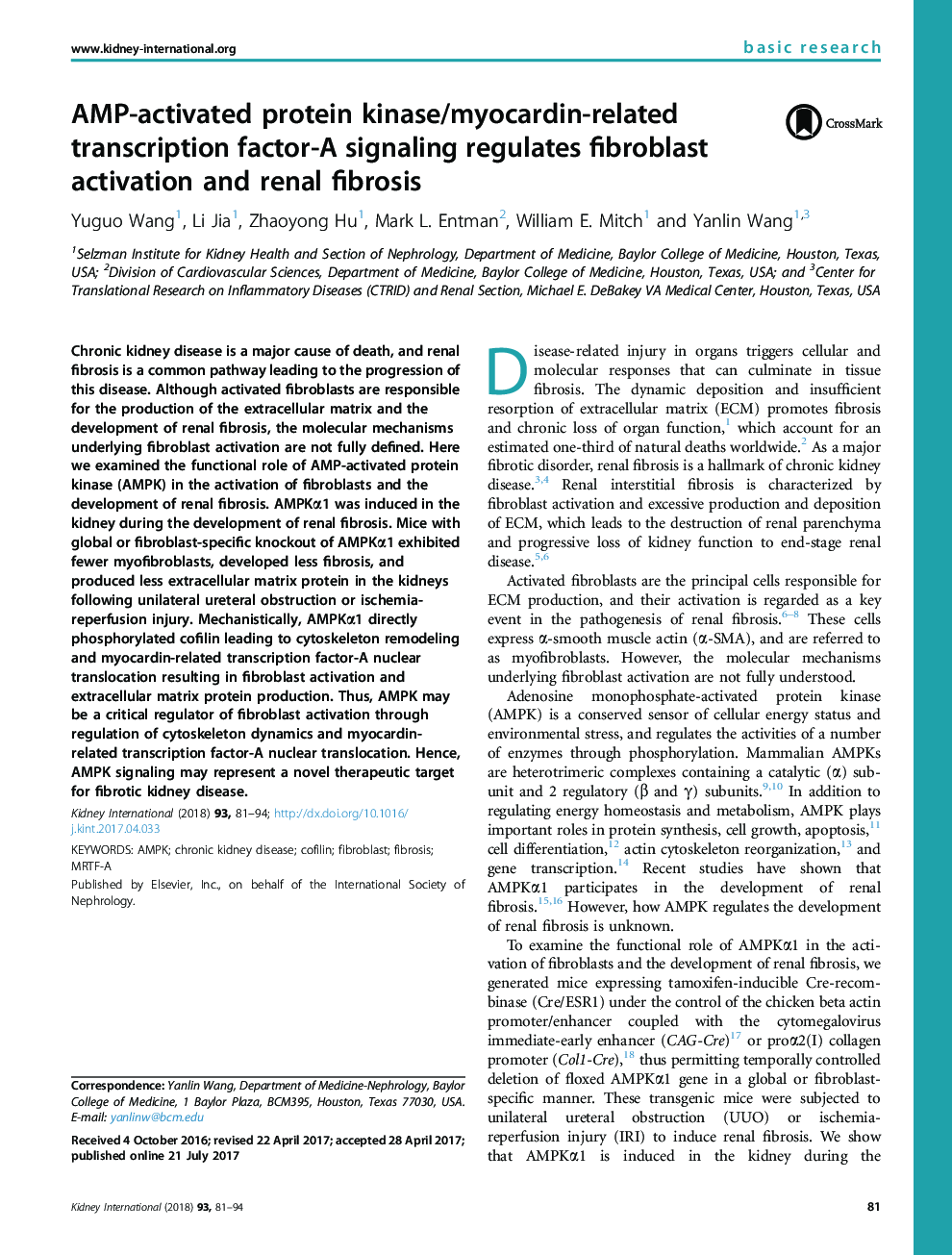| Article ID | Journal | Published Year | Pages | File Type |
|---|---|---|---|---|
| 8773026 | Kidney International | 2018 | 14 Pages |
Abstract
Chronic kidney disease is a major cause of death, and renal fibrosis is a common pathway leading to the progression of this disease. Although activated fibroblasts are responsible for the production of the extracellular matrix and the development of renal fibrosis, the molecular mechanisms underlying fibroblast activation are not fully defined. Here we examined the functional role of AMP-activated protein kinase (AMPK) in the activation of fibroblasts and the development of renal fibrosis. AMPKα1 was induced in the kidney during the development of renal fibrosis. Mice with global or fibroblast-specific knockout of AMPKα1 exhibited fewer myofibroblasts, developed less fibrosis, and produced less extracellular matrix protein in the kidneys following unilateral ureteral obstruction or ischemia-reperfusion injury. Mechanistically, AMPKα1 directly phosphorylated cofilin leading to cytoskeleton remodeling and myocardin-related transcription factor-A nuclear translocation resulting in fibroblast activation and extracellular matrix protein production. Thus, AMPK may be a critical regulator of fibroblast activation through regulation of cytoskeleton dynamics and myocardin-related transcription factor-A nuclear translocation. Hence, AMPK signaling may represent a novel therapeutic target for fibrotic kidney disease.
Related Topics
Health Sciences
Medicine and Dentistry
Nephrology
Authors
Yuguo Wang, Li Jia, Zhaoyong Hu, Mark L. Entman, William E. Mitch, Yanlin Wang,
